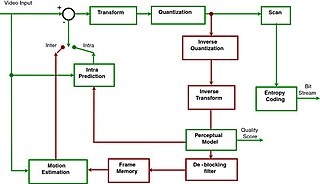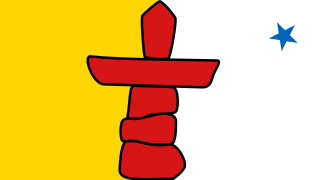Related Research Articles
Racial profiling or ethnic profiling is the act of suspecting, targeting, or discriminating against a person based on their ethnicity, religion, or nationality, rather than individual suspicion or evidence. This practice involves discrimination against minority populations and often relies on negative stereotypes. Racial profiling can include disproportionate stop-and-searches, traffic stops, and the use of surveillance technology for facial identification. Racial profiling can occur de jure or de facto. Critics argue that racial profiling is discriminatory as it disproportionately targets people of color. Supporters claim it can be an effective tool for preventing crime but acknowledge that it should be closely monitored and used in a way that respects civil rights.

The United States National Security Council (NSC) is the national security council used by the president of the United States for consideration of national security, military, and foreign policy matters. Based in the White House, it is part of the Executive Office of the President of the United States, and composed of senior national security advisors and Cabinet officials.

The CMYK color model is a subtractive color model, based on the CMY color model, used in color printing, and is also used to describe the printing process itself. The abbreviation CMYK refers to the four ink plates used: cyan, magenta, yellow, and key.

Sprinting is running over a short distance at the top-most speed of the body in a limited period of time. It is used in many sports that incorporate running, typically as a way of quickly reaching a target or goal, or avoiding or catching an opponent. Human physiology dictates that a runner's near-top speed cannot be maintained for more than 30–35 seconds due to the depletion of phosphocreatine stores in muscles, and perhaps secondarily to excessive metabolic acidosis as a result of anaerobic glycolysis.

Advanced Video Coding (AVC), also referred to as H.264 or MPEG-4 Part 10, is a video compression standard based on block-oriented, motion-compensated coding. It is by far the most commonly used format for the recording, compression, and distribution of video content, used by 91% of video industry developers as of September 2019. It supports a maximum resolution of 8K UHD.

The Golden Horseshoe is a secondary region of Southern Ontario, Canada, which lies at the western end of Lake Ontario, with outer boundaries stretching south to Lake Erie and north to Lake Scugog, Lake Simcoe and Georgian Bay of Lake Huron. The region is the most densely populated and industrialized in Canada. Based on the 2021 census, with a population of 7,759,635 people in its core and 9,765,188 in its greater area, the Golden Horseshoe accounts for over 20 percent of the population of Canada and more than 54 percent of Ontario's population. It is part of the Quebec City–Windsor Corridor, itself part of the Great Lakes megalopolis.

Anna University is a public state university located in Chennai, Tamil Nadu, India. The main campus is in Guindy. It was originally established on 4 September 1978 and is named after C.N.Annadurai, the former Chief Minister of Tamil Nadu.

LinkedIn is a business and employment-focused social media platform that works through websites and mobile apps. It was launched on May 5, 2003 by Reid Hoffman and Eric Ly. Since December 2016, LinkedIn has been a wholly owned subsidiary of Microsoft. The platform is primarily used for professional networking and career development, and allows jobseekers to post their CVs and employers to post jobs. From 2015, most of the company's revenue came from selling access to information about its members to recruiters and sales professionals. LinkedIn has more than 1 billion registered members from over 200 countries and territories.
MPEG-4 Part 2, MPEG-4 Visual is a video compression format developed by the Moving Picture Experts Group (MPEG). It belongs to the MPEG-4 ISO/IEC standards. It uses block-wise motion compensation and a discrete cosine transform (DCT), similar to previous standards such as MPEG-1 Part 2 and H.262/MPEG-2 Part 2.

Offender profiling, also known as criminal profiling, is an investigative strategy used by law enforcement agencies to identify likely suspects and has been used by investigators to link cases that may have been committed by the same perpetrator. The originator of modern profiling was FBI agent Robert Ressler. He defined profiling as the process of identifying all psychological characteristics of an individual and forming a general description of their personality based on an analysis of crimes they have committed.

The districts of Afghanistan, known as wuleswali, are secondary-level administrative units, one level below provinces. The Afghan government issued its first district map in 1973. It recognized 325 districts, counting wuleswalis (districts), alaqadaries (sub-districts), and markaz-e-wulaiyat. In the ensuing years, additional districts have been added through splits, and some eliminated through merges. In June 2005, the Afghan government issued a map of 398 districts. It was widely adopted by many information management systems, though usually with the addition of Sharak-e-Hayratan for 399 districts in total. It remains the de facto standard as of late 2018, despite a string of government announcements of the creation of new districts.

Nunavut is the largest, easternmost, and northernmost territory of Canada. It was separated officially from the Northwest Territories on April 1, 1999, via the Nunavut Act and the Nunavut Land Claims Agreement Act, which provided this territory to the Inuit for self-government. The boundaries had been drawn in 1993. The creation of Nunavut resulted in the first major change to Canada's political map in half a century since the province of Newfoundland was admitted in 1949.
High Efficiency Video Coding (HEVC), also known as H.265 and MPEG-H Part 2, is a video compression standard designed as part of the MPEG-H project as a successor to the widely used Advanced Video Coding. In comparison to AVC, HEVC offers from 25% to 50% better data compression at the same level of video quality, or substantially improved video quality at the same bit rate. It supports resolutions up to 8192×4320, including 8K UHD, and unlike the primarily 8-bit AVC, HEVC's higher fidelity Main 10 profile has been incorporated into nearly all supporting hardware.

Google+ was a social network that was owned and operated by Google until it ceased operations in 2019. The network was launched on June 28, 2011, in an attempt to challenge other social networks, linking other Google products like Google Drive, Blogger and YouTube. The service, Google's fourth foray into social networking, experienced strong growth in its initial years, although usage statistics varied, depending on how the service was defined. Three Google executives oversaw the service, which underwent substantial changes that led to a redesign in November 2015.

A user profile is a collection of settings and information associated with a user. It contains critical information that is used to identify an individual, such as their name, age, portrait photograph and individual characteristics such as knowledge or expertise. User profiles are most commonly present on social media websites such as Facebook, Instagram, and LinkedIn; and serve as voluntary digital identity of an individual, highlighting their key features and traits. In personal computing and operating systems, user profiles serve to categorise files, settings, and documents by individual user environments, known as ‘accounts’, allowing the operating system to be more friendly and catered to the user. Physical user profiles serve as identity documents such as passports, driving licenses and legal documents that are used to identify an individual under the legal system.